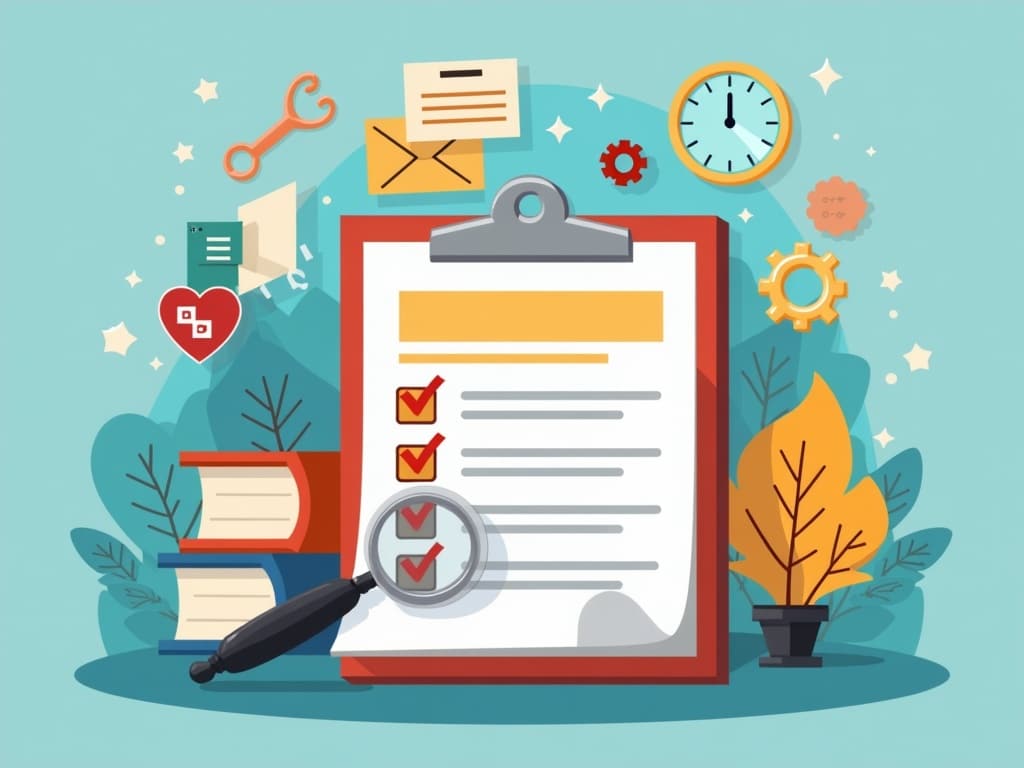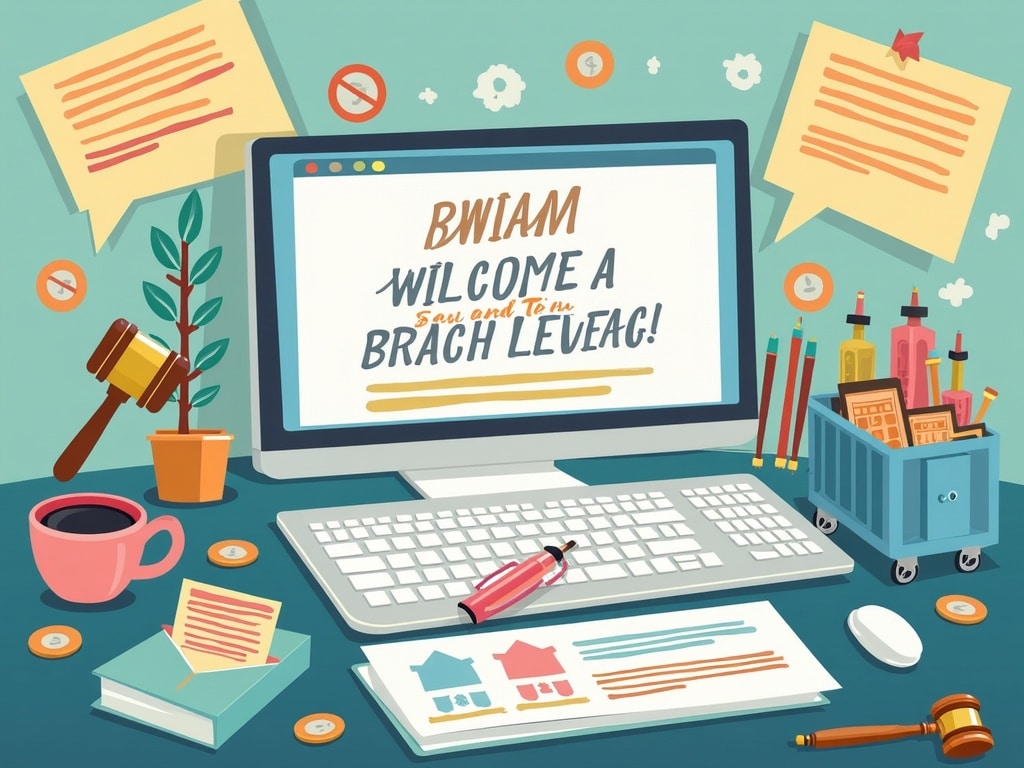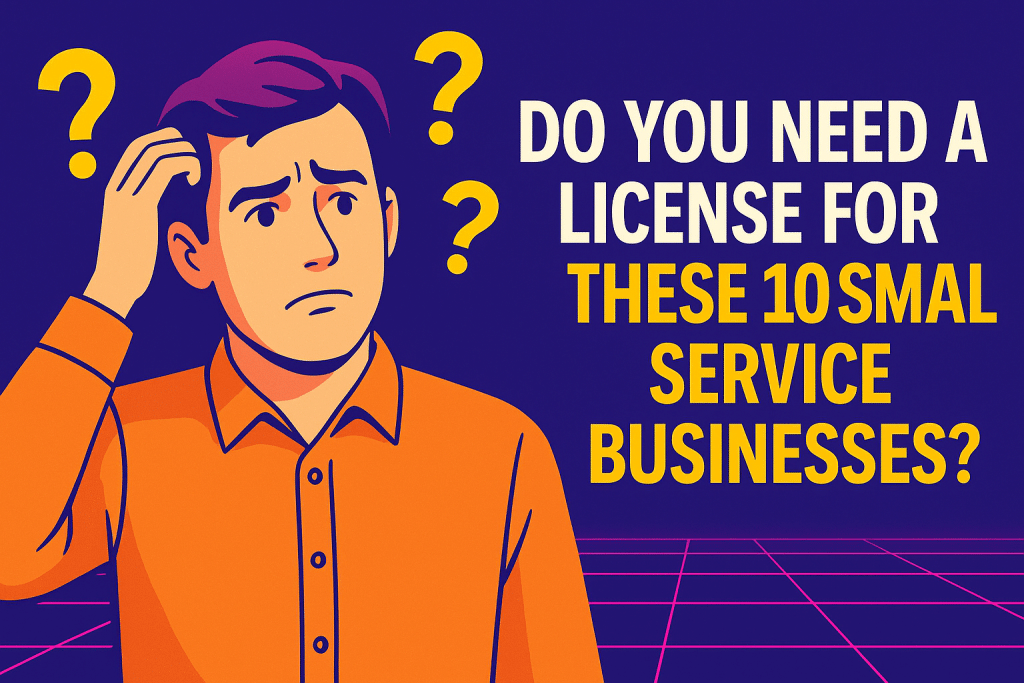How to Get a Business License for My Home Business: A Complete Guide
Starting a home business can feel like stepping into a thrilling new world, full of possibilities and the allure of being your own boss. But before you dive headfirst into taking orders and making sales, there's a critical first step that can't be overlooked: securing the necessary business licenses and permits. Think of them as your 'permission to operate' pass, ensuring you're running your venture legally and ethically. Navigating this landscape can seem daunting, so let's break down exactly how to get a business license for your home business, step by step.
Why You Absolutely Need a Business License
Ignoring the need for a business license is a risky path. Operating without one can lead to hefty fines, legal trouble, and even forced closure of your business. Beyond the potential penalties, obtaining a license builds trust with your customers and adds credibility to your brand. It shows you're serious about your business and committed to adhering to the rules. Essentially, it's the foundation upon which you build a legitimate and sustainable enterprise.
Licenses are not optional: understanding the consequences
Imagine putting your heart and soul into your home-based bakery, only to be shut down because you didn't obtain the proper food handling permits. Or envision facing a lawsuit because your online consulting business was operating without a required professional license. These scenarios are easily avoidable by taking the time to understand and comply with the licensing requirements in your area.
Building credibility with customers and partners
When customers know you're operating legally, they're more likely to trust your products or services. A visible business license or permit can be a reassuring sign, setting you apart from fly-by-night operations. Similarly, suppliers and partners will be more willing to work with a licensed business, knowing you're a reliable and legitimate entity.
Step-by-Step Guide to Obtaining Your Business License
The process of obtaining a business license for your home business typically involves several key steps. While the specifics may vary depending on your location and industry, this guide will provide a general framework to follow.
Step 1: Determine the Type of License(s) You Need
The first step is to identify which licenses and permits are required for your specific business activities and location. This often involves researching local, state, and federal regulations.
- Local Licenses: These are typically issued by your city or county and may include general business licenses, home occupation permits, zoning permits, and health permits (for food-related businesses).
- State Licenses: Depending on your state and industry, you may need a state-level business license, professional license (for occupations like law, medicine, or cosmetology), or sales tax permit.
- Federal Licenses :Certain industries, such as those dealing with alcohol, tobacco, firearms, or transportation, require federal licenses or permits.
Step 2: Researching Requirements: Where to Look
Figuring out exactly which licenses you need can feel overwhelming. Here's a breakdown of where to find the answers:
- Small Business Administration (SBA):The SBA website offers a wealth of information on starting and running a business, including guidance on licenses and permits.
- Your City and County Government Websites: These websites typically have sections dedicated to business licensing, zoning regulations, and permit requirements.
- Your State Government Website: Look for the website of your state's business licensing agency or department of revenue.
- Industry Associations: Many industries have associations that provide resources and guidance on licensing requirements specific to their field.
Step 3: Gathering Necessary Documentation
Once you know which licenses you need, gather all the required documentation. This may include:
- Business Plan: A detailed outline of your business, including your products or services, target market, and financial projections.
- Proof of Identity: Driver's license, passport, or other government-issued identification.
- Social Security Number (SSN) or Employer Identification Number (EIN) : Your SSN is required if you're a sole proprietor. An EIN is needed if you're operating as a corporation, partnership, or LLC.
- Zoning Compliance Information: Documentation showing that your home business complies with local zoning regulations.
- Proof of Insurance : Depending on your industry, you may need to provide proof of liability insurance or other types of coverage.
Step 4: Completing the Application Process
The application process varies depending on the licensing agency. In many cases, you can apply online, but some agencies may require you to submit a paper application in person or by mail.
- Online Applications: Most state and local governments now offer online portals for business license applications. This can save you time and simplify the process.
- Paper Applications: If you need to submit a paper application, make sure to fill it out completely and accurately. Double-check all the information before submitting it.
- Application Fees :Be prepared to pay an application fee for each license or permit you need. The fees vary depending on the type of license and your location.
Step 5: Inspections and Compliance Checks
Some licenses or permits may require inspections or compliance checks before they are issued. For example, if you're opening a home-based food business, you may need to undergo a health inspection to ensure your kitchen meets safety standards. Similarly, you might need a zoning inspection to confirm that your business activities comply with local zoning regulations.
Step 6: Receiving and Maintaining Your License
Once your application is approved and any required inspections are completed, you'll receive your business license or permit. It's crucial to keep your license in a safe place and ensure it's readily available if needed.
- Renewal Requirements: Most business licenses have an expiration date and need to be renewed periodically. Keep track of your renewal dates and submit your renewal application on time to avoid penalties.
- Staying Compliant: It's your responsibility to stay informed about any changes to licensing regulations and ensure your business remains compliant. This may involve ongoing training, inspections, or reporting requirements.

Common Mistakes to Avoid When Applying for a Business License
Navigating the business licensing process can be complex, and it's easy to make mistakes. Here are some common pitfalls to avoid:
- Underestimating the Time Required: Don't wait until the last minute to apply for your licenses. The application process can take several weeks or even months, so start early.
- Providing Inaccurate Information: Make sure all the information you provide on your application is accurate and up-to-date. Even minor errors can cause delays or rejection.
- Ignoring Zoning Regulations: Before starting your home business, check your local zoning regulations to ensure your business activities are permitted in your residential area.
- Failing to Renew on Time: Keep track of your license renewal dates and submit your renewal application before the expiration date.
- Not Seeking Professional Advice: If you're unsure about any aspect of the licensing process, don't hesitate to seek advice from a business attorney or consultant.
Specific Considerations for Home-Based Businesses
Running a business from your home adds another layer of complexity to the licensing process. Here are some specific considerations for home-based businesses:
Home Occupation Permits
Many cities and counties require home-based businesses to obtain a home occupation permit. This permit ensures that your business activities do not disrupt the residential character of your neighborhood or violate any zoning regulations.
Zoning Restrictions and HOA Rules
Before starting your home business, check your local zoning ordinances and homeowner association (HOA) rules. These regulations may restrict the types of businesses you can operate from your home, limit the number of employees you can have, or prohibit certain activities that could disturb your neighbors. Make sure there are not any restrictions enforced.
Insurance Implications
Operating a business from your home may affect your homeowner's insurance policy. Talk to your insurance provider to ensure you have adequate coverage for your business activities. You may need to purchase additional liability insurance or a separate business insurance policy.
The Benefits of Operating a Licensed Home Business
While the process of obtaining a business license may seem like a hassle, it's an essential step that offers numerous benefits:
- Legitimacy: A business license adds legitimacy to your business and builds trust with customers and partners.
- Legal Protection: Operating with a license protects you from legal penalties and fines.
- Access to Resources: A business license may qualify you for certain government programs, grants, and loans.
- Professional Credibility :A license enhances your professional credibility and makes it easier to attract clients and customers.
- Peace of Mind: Knowing you're operating legally and ethically provides peace of mind and allows you to focus on growing your business.
Final Thoughts: Invest in Your Business's Future
Obtaining the necessary business licenses and permits for your home business is a crucial investment in its long-term success. While it may seem like a daunting task, taking the time to understand and comply with the regulations in your area will protect you from legal trouble, build credibility with your customers, and set your business up for sustainable growth. So, take a deep breath, do your research, and embark on the journey of building a licensed and legitimate home business. The rewards of doing things right far outweigh the risks of cutting corners.
And what if you change your business idea? Discover the business license requirements for popular services businesses and make sure you're covered!




